
Same-Day, Round-Trip Interventional Endoscopy
Seven physicians from CentraCare co-authored a study with three University of Minnesota physicians and CentraCare’s Deanne Walz, MSN, BSN, CGRN to implement a same-day, round-trip interventional endoscopy service for rural and critical access hospital patients. The result of their work is featured in the Journal of Hospital Medicine, Innovations Corner. Read excerpts from their journal article below.
Problem
Access to interventional endoscopy expertise is often restricted to tertiary care centers and may not be available in rural or critical access hospitals. In central Minnesota, St. Cloud Hospital is the tertiary referral center for the state’s central region, with 489 licensed beds and a level II trauma center, comprehensive stroke center, intensive care unit (ICU), and staffed with physicians from nearly all medical and surgical subspecialties. During the COVID‐19 pandemic, patients presenting to rural or critical access hospitals in central Minnesota and needing urgent endoscopic procedures had difficulty accessing timely care due to the lack of beds at our institution or other capable facilities in Minnesota,1 a problem which persists to the present day.
Our operational objective was to develop a roundtrip, same‐day endoscopic procedures service where patients would transfer by ambulance to our institution to undergo the necessary procedures and then return to the referring hospital for further care.
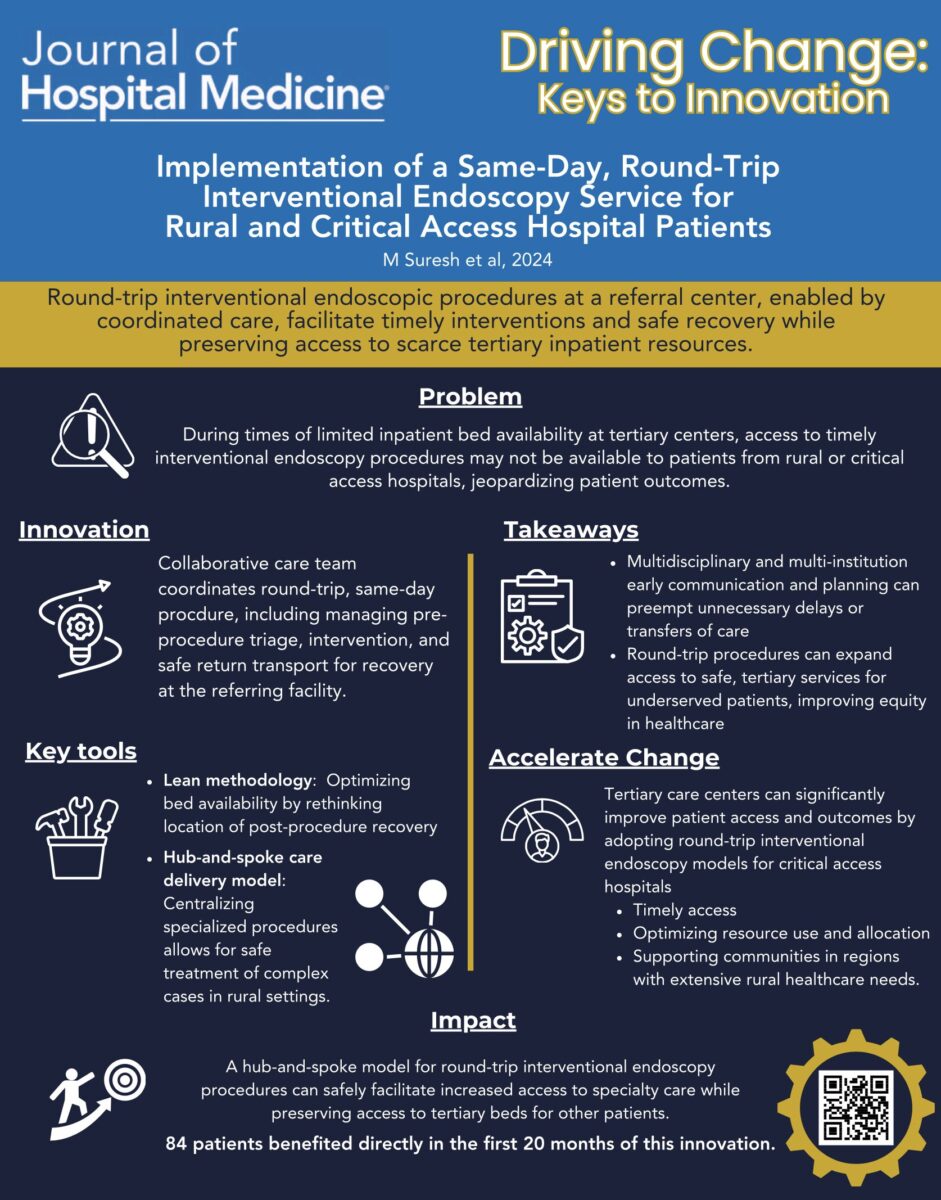
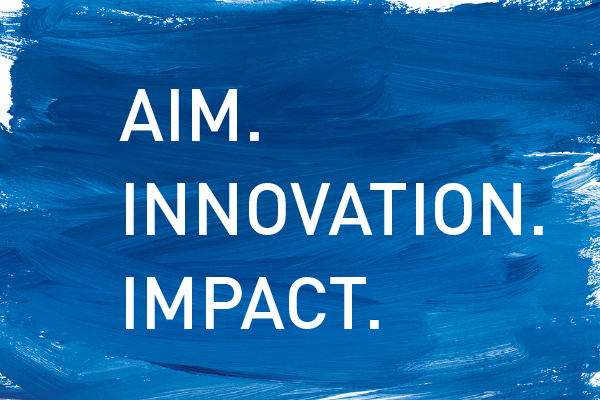
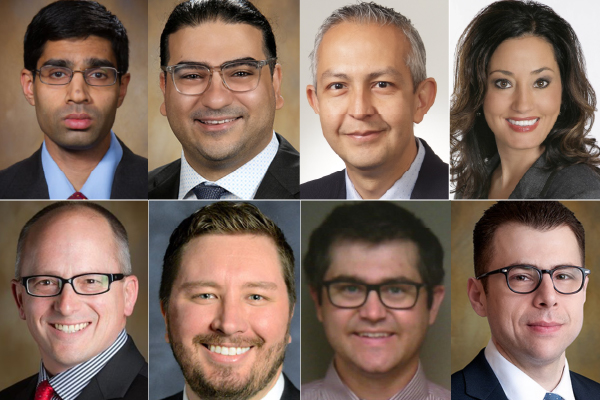
Authors
Mithun R. Suresh MD | Najib Nassani MD, MSc | Luis A. Servin-Abad MD | Deanne B. Walz MSN, BSN, CGRN | Paul R. Davis MD | Christopher W. Boelter MD | Tyler G. Goettl MD | Greg J. Beilman MD (not pictured) | Martin L. Freeman MD (not pictured) | Andrew P. J. Olson MD (not pictured)|Fateh Bazerbachi, MD |
Specific Aim Statement
This service aims to provide interventional endoscopy care for rural and critical access hospital patients that are appropriate candidates in 1–2 days from receiving a request from a referring provider, avoid admission to our institution following the procedures, and recover post‐procedurally in the referring hospital and not need to transfer back to our institution during the index hospitalization (with index hospitalization being the hospitalization during which the round‐trip occurs).
Innovation
During daytime hours, referring providers caring for patients needing endoscopic procedures would contact our institution’s transfer center and be connected with the medical officer of the day (MOD), a role filled daily by a hospitalist who is the accepting physician for all patients directly admitted to the hospital medicine service; all patients needing endoscopic procedures are admitted by the hospital medicine service with gastroenterology consultation at our institution. If no beds are available for inpatient transfer, then a round‐trip could be considered. After discussing the patient with the referring provider and reviewing relevant information in the EMR (if available) to see if the patient is a candidate for round‐trip procedures, the gastroenterology team is contacted to further discuss and review the patient. The anesthesiology team will also review relevant patient information before transfer.
The general workflow algorithm for round‐trip procedures is shown in Figure 1 with some additional information.
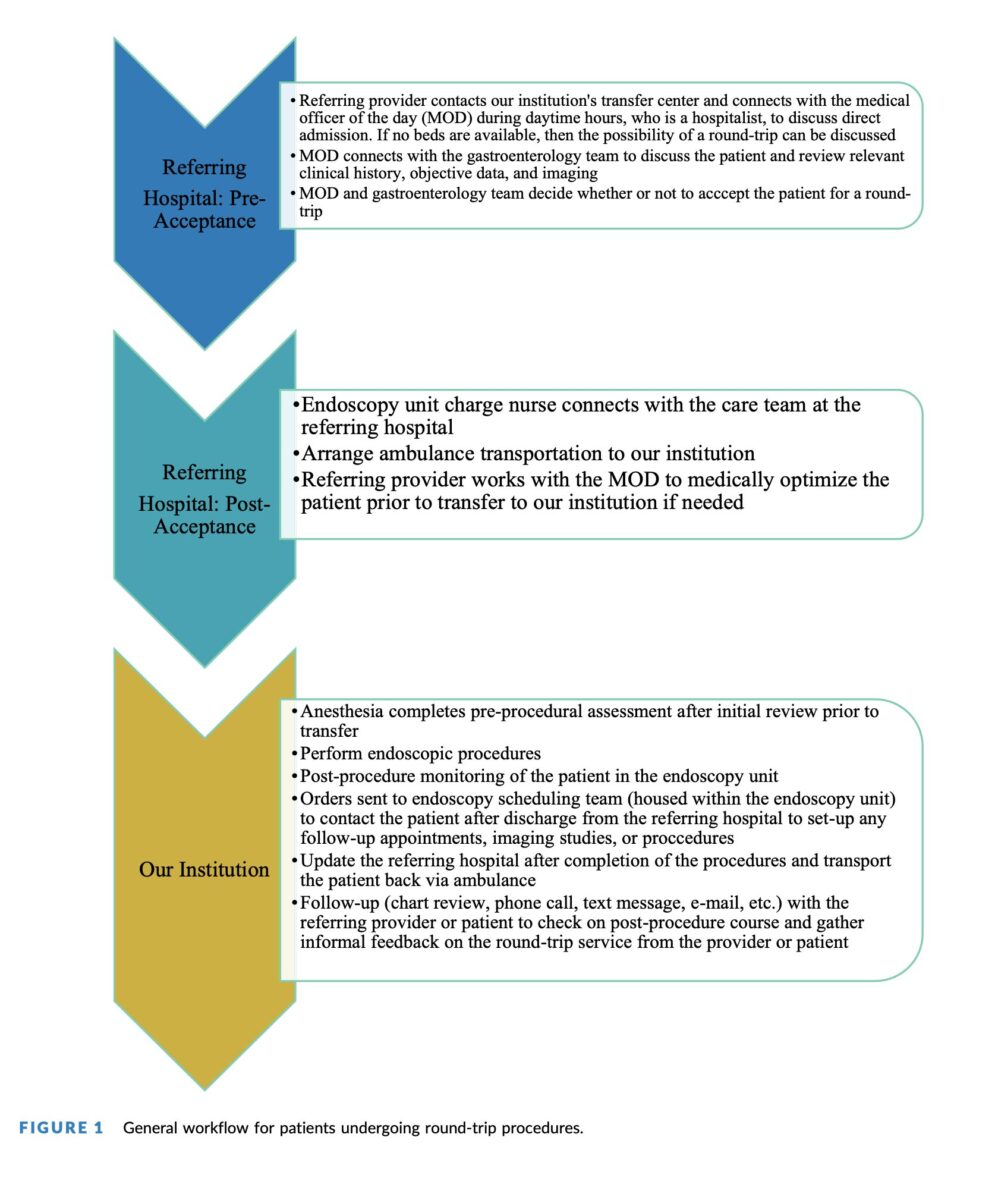
Impact
Outcome metrics (followed by results) were: (1) number of candidate patients completing round‐trips in 1–2 days from the request (84/84, 100%), (2) number of patients admitted to our institution immediately following their round‐trip procedures (4/84, 4.8%), and (3) number of patients needing transfer back to our institution after the completion of the round‐trip during the index hospitalization (0/84, 0.0%). In addition to the results shown in Table 1, no patients died during the index hospitalization, and in patients with gallstone disease, 30 had a cholecystectomy at the referring hospital during the index admission. Data on the importance of centralizing certain endoscopic procedures is robust,6 so having experienced advanced endoscopists offer these procedures to rural patients and provide them with a tertiary level of care while being able to take advantage of local surgical expertise is valued by our institution and patients. Patients can recover closer to home, and hospitalists can continue to preserve access to tertiary inpatient services for other patients.
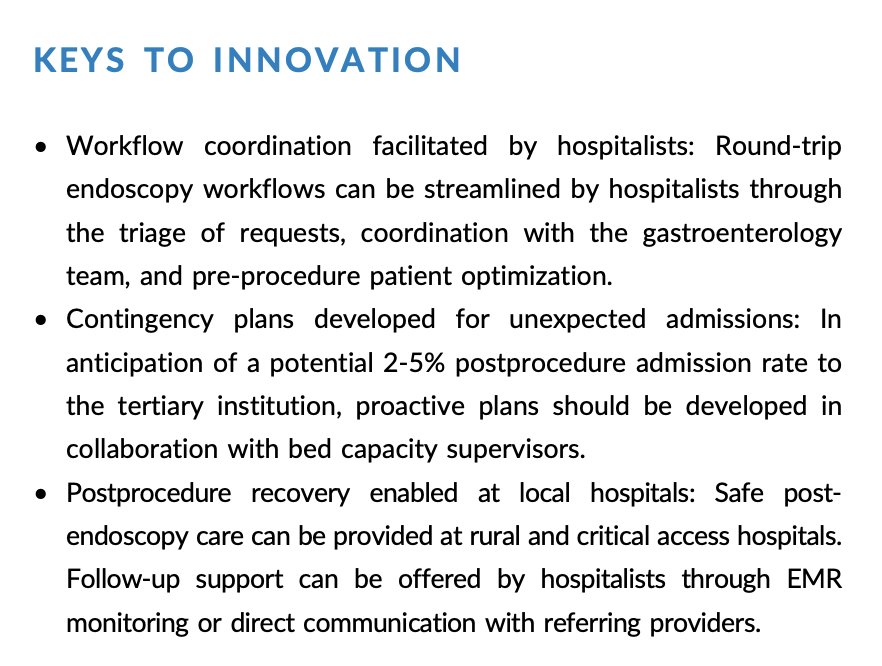
For lessons learned, optimizing collaboration with other providers was an important area of focus and improvement.
Acknowledgment
The authors would like to thank the endoscopy staff (advanced practice providers, charge nurses, bedside nurses, unit secretaries, technicians, and all other support staff) in the St. Cloud Hospital Endoscopy Unit for their hard work in executing this service and their outstanding patient care.
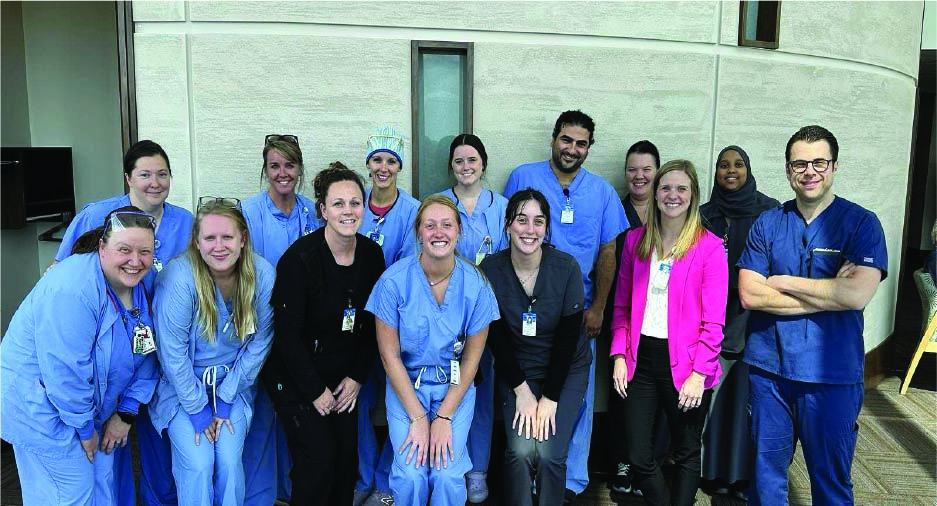
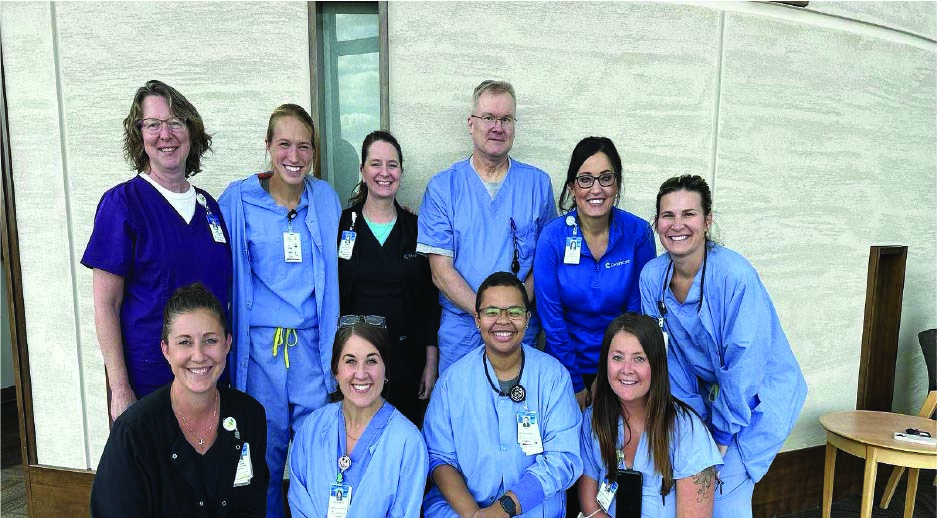
My heartfelt appreciation for the remarkable collaborative spirit and goal-oriented teamwork among our nurses, physicians, APPs, and supportive staff. This exceptional environment has led to the publication of one of the first, if not the first, peer-reviewed articles in full manuscript format on this critical topic, which perfectly encapsulates CentraCare’s core mission of bringing tertiary care closer to home.
Fateh Bazerbachi, md

